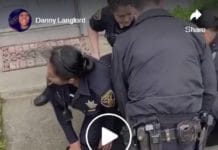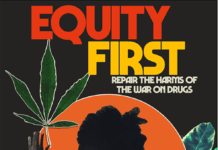The joy of fatherhood: Helpful tips for fathers and men who want to become fathers
by Morris Turner
The joy of fatherhood can quickly be interrupted by unexpected twists and turns in daily life. We do our best to prepare our children for these occasions – let’s call them “bumps in the road” – that we know they will inevitably face.

When they begin to walk and talk, we show them how to safely cross the street after looking both ways. When they enter school, we let them know that if a problem of any kind comes up, always go talk to the teacher. If the teacher isn’t able to help or if they still feel confused, come home and talk to us about it. However, over the past 30 years or so, the ever increasing presence of law enforcement in the lives of our children has created new challenges for them as well as for us as parents.
It is troubling and unacceptable to me that the children of our community find themselves encountering law enforcement at earlier and earlier points in their lives. Just as we instruct them in how to cross the street safely when they are young, we now have to teach them how to handle encounters with police in a manner that may save their lives.
Here are a few things all parents should be aware of in dealing with the police:
- Like all human beings, police officers can carry stress from home life into the workplace. They may also have other unresolved personal issues, including a lack of awareness and understanding of cultural dynamics and mores.
- Many police officers have a “rush to judgment” mentality and feel that everyone is guilty until proven otherwise. This perspective becomes even more profound in dealing with communities of color as evidenced by the sheer number of people killed in interactions with law enforcement. The typical justification is that the officers feared for their lives even when the victim had no weapon.
- Most police officers are not trained in how to deal with mental health crisis and, when called out to assist, focus on the quickest way to eliminate the crisis, often resulting in serious injury or death.
- Not every officer can handle the power and authority of their position in the same manner. Being allowed to carry and use a deadly weapon at their own discretion, coupled with the adrenaline rush, can sometimes have devastating results. Andy Lopez, a Santa Rosa teenager walking with a toy gun and posing no threat, was shot seven times by such an officer. The child is dead, his family and community devastated. What was the gain?
It is important to inform and educate your children about these realities and prepare them for the “when” not “if” encounters they will face in their lives. Here is some protocol I used with my own children that you may also find of value:
- Remind your children to be polite, make good eye contact and answer only what is asked when dealing with police.
- Don’t let the officer’s attitude, which might be aggressive, affect their attitude. In other words, don’t let the officer “push their buttons.” Let them know that often times, officers are fearful, nervous and on edge emotionally, so do not make any sudden moves that might put them off balance.
- If your child is of driving age, make sure they have all the appropriate paperwork in the car – no excuses – and keep both hands visible on top of the steering wheel at all times when stopped by the police.
It is sad to say, but one of these suggestions may save your child from a needless injury or death. I pray that officers finding themselves in these situations will ask, “Is deadly force my only option?”
Morris Turner is the father of two sons, ages 39 and 35. Over the past 45 years he has worked with children and young people in a variety of settings, including as preschool teacher, career counselor, family mentor and sports coach. He is also an author and recognized researcher in the area of African American settlement in the United States, but his greatest pleasure today is learning to be a good grandpa. He can be reached at missnpages@comcast.net or by calling (707) 794-0729.

 Store
Store












